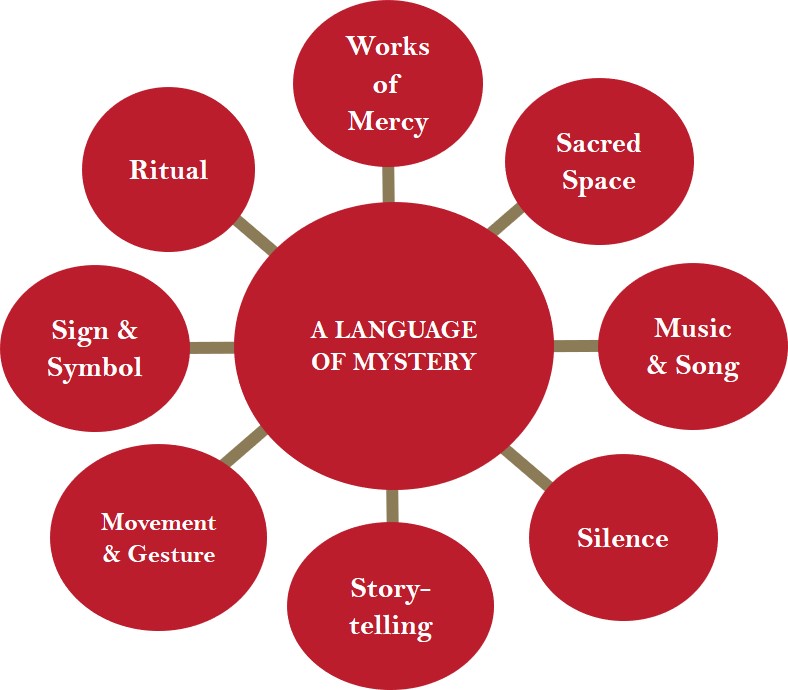
We continue with our series exploring six keys to making our faith formation experiences more evangelizing by focusing on key #2: sacramentality.
Simply put, Catholics have a “way of seeing”—a vision for reality that is informed by the presence of God in all things. We call this way of seeing sacramentality, a way of “seeing” the invisible and intangible presence of God through visible and tangible realities. Catholic faith formation is most effective when it teaches this way of seeing in addition to doctrine. Why? Because if we can recognize the presence of God in our world and in our neighbor, we will love and respect all of creation and all human beings, and we will know that we are never alone, because God is with us.
If we want our catechesis to be more evangelizing, we must speak to people’s hearts, which sacramentality does. By relying on a language of mystery (symbolic action), sacramentality serves as a vehicle that is capable of transporting a human being from a narrative of defeat, dysfunction, and despair to one of rescue, restoration, and reassurance.
How does sacramentality accomplish this? Think of the following example: when a child falls down and scrapes a knee, he or she goes to Mommy or Daddy and asks her or him to “kiss it and make it better.” Now, we know that this act is symbolic and does not heal damaged cells at the molecular level, but we do it because we know that it does make it better! The symbolic act transports the child from a narrative of fear and pain to one of love and comfort—and things do begin to get better.
In our Catholic Tradition, we have many powerful, symbolic actions that make up our sacramental life. When we light a candle, pour water, anoint with oil, lay on hands, or trace the Sign of the Cross, we invoke a narrative of rescue, restoration, and reassurance—the three “R’s” of the Good News. The sacraments are not magic, just as “kissing it and making it better” is not magic. But, like that and every other symbolic action, they “work” by invoking a narrative—telling a story. And it is through the proclamation of that story that we encounter the One who rescues, restores, and reassures us: Jesus Christ!
Our Catholic faith formation must be imbued with sacramentality if we hope to transport those we teach to a narrative of rescue, restoration, and reassurance. Several years ago, I created the below diagram to show the elements that constitute a language of mystery. I encourage you to do an inventory of your approach to faith formation to make sure that you are integrating these elements on a regular basis in order to speak to the hearts of those you teach!

Achieve a more evangelizing faith formation experience for young people with Finding God: Our Response to God’s Gifts.





I would appreciate if you could have an adult catechetical tips for this being an adult catechist. To imbibe them that sacraments are not just rituals but realistic Happening in our daily lives.